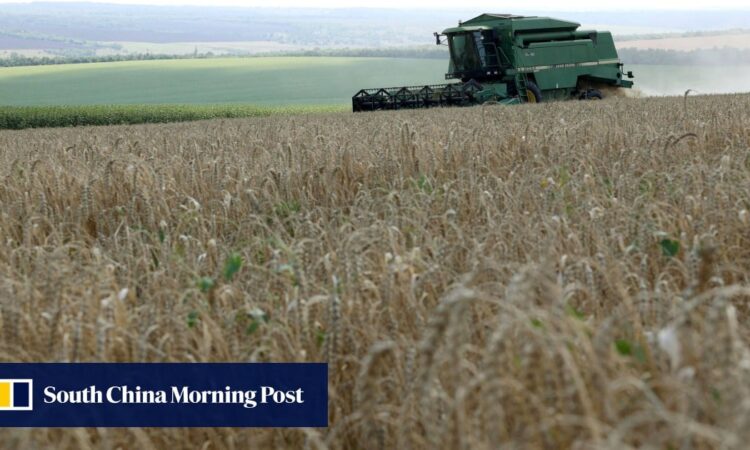China, Europe can look past disputes to cultivate food trade, EU agriculture commissioner says

Despite souring relations, there is still great potential for China and the European Union to boost their agri-food trade, the EU’s chief agricultural official said while urging Beijing to increase its purchases from Ukraine.
“Food products should be excluded from problems in other sectors. Open food trade is very important for food security at the global level,” he said in an interview with the Post in Shanghai.
Leading a delegation of over 70 business representatives from the agri-food sector, the largest in his tenure, Wojciechowski said the size of the entourage “shows how important China is as our trade partner”.
While China exports a large volume of goods to Europe, such as solar panels and new energy vehicles, the EU has a significant trade surplus when it comes to the agri-food sector.
China is the third-largest destination for food from the EU and the fifth-largest source of the EU’s food imports, according to 2022 figures from the European Commission.
The EU exported about €17.7 billion (US$18.9 billion) worth of agri-food products to China in 2020, and imported over €5.1 billion worth of those goods from the country the same year.
China is finalising approval for a second batch of geographical indications (GI) covering 175 agricultural products from the EU, said the commissioner, following an agreement signed in 2020 to use the label to protect 100 European products in China and 100 Chinese products in the EU.
Representing a total business value of €350 billion, Wojciechowski’s delegation is also attending a major food and beverage trade fair in Shenzhen later this week, with eyes on expanding their presence in the China market – and its voracious consumer base eager to try a variety of high-quality food.
“In China, we can observe more interest in the quality of food, safe and healthy food. Chinese consumers are more sensitive to this,” he said, adding that high quality standards are the main value of food produced in Europe.
The most popular items China imports from the EU include infant food, cereals, pork and wine, while the EU mainly purchases – in comparatively lower volume – animal products such as meats and fats from China.
I hope that you will return to this position, [with Ukraine as] a big exporter to China … This is very important for the stabilisation of the situation in the global market
“I hope that you will return to this position, [with Ukraine as] a big exporter to China, the Asian and African market. This is very important for the stabilisation of the situation in the global market,” he said.
The Black Sea initiative was implemented in July 2022 to ensure that Ukraine, one of the world’s breadbaskets, could safely export its grain from its southern ports, but it expired a year later after Russia chose not to renew. Ukraine has since redirected a large share of exports to the EU and shipments to China have slumped.

.jpg)





